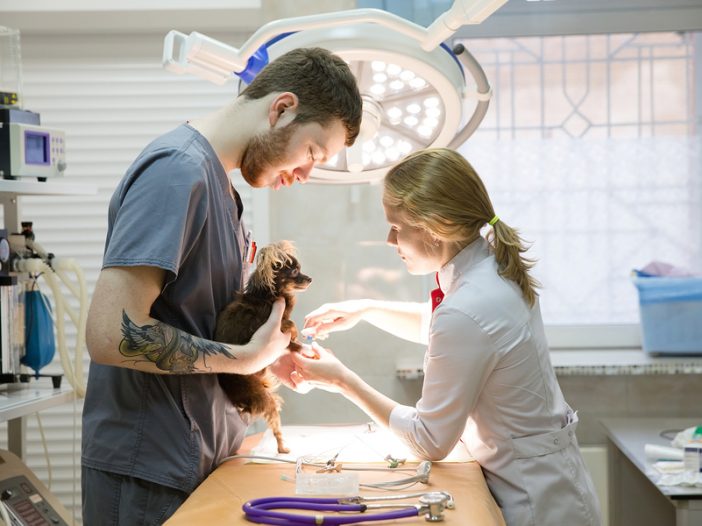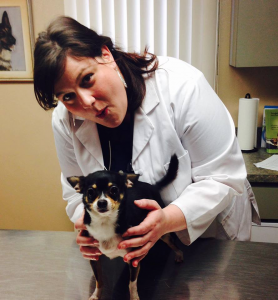
The Technician Perspective
As a veterinary technician specialist, I get called in to consult with practices on how to make their anesthesia and pain management plans the best they can be. I sit down and review the protocols and practices, take an inventory of drugs available and converse with the staff about the flow of the surgery day. All of these things are super important when it comes to a quality patient experience however ONE THING stands out more than others. In order for the practice to be running at its highest level, the relationship between the technicians and doctors has to be one of collaboration and trust. Now I know trust is not built overnight but let me stress the importance of handing things over to your techs and letting go for a minute.
Technicians are versatile and valuable asset to your practice. Teach them how to do ALL THE THINGS and you will see their confidence boosted and they will become more engaged and your practice will thrive. Want more time to make your phone calls or heck I don’t know… eat lunch? Teach your technicians to perform local blocks, call clients for follow up, or write discharge instructions. I have been surprised by how many clinics I visit and the technicians are scared to offer their help or suggestions because a doctor has told them their opinion doesn’t matter or to quote one technician “ to stay in her lane” when she suggested a tactic for dealing with an aggressive dog. Patient care suffers when your technicians feel they cannot be a part of the conversation regarding patient care.
That’s not just an opinion it’s science: In human medicine it’s been found both the safety and the quality of care patients receive depend upon the quality of relationships in the healthcare practice environment where care is provided (Joint Commission, 2008; Shen, Chiu, Lee, Hu, & Chang, 2010). Intimidating or disrespectful behavior by doctors toward nurses impacts the healthcare practice environment in a negative way, affecting both nurse retention and patient outcomes (Institute of Medicine [IOM], 2010; Joint Commission, 2008; Schmalenberg & Kramer, 2009).
So, docs why can’t we work together to create the best patient outcomes? Teach your techs the way you want things done, set up a standard of care and let them flourish. But don’t just take my word for it… here’s amazeballs veterinarian Dr. Lauren Smith to give us the white coat opinion on how we can bridge the gap and maximize efficiency.
The Veterinarian Perspective
As a veterinarian, I make life and death decisions every day. I go into exam rooms and examine sick pets with emotionally distraught clients. I cut open animals and touch their insides, then put them back together. It’s a LOT of responsibility.
At the end of the day, the buck stops with me. If a cat dies because a technician gave the wrong dose of insulin, it’s my fault. If a client gets bitten because an assistant wasn’t restraining properly, that’s on me. If a boarder doesn’t get her seizure medication and has a seizure because the client service representative didn’t mark it properly on the intake paperwork, it’s my license on the line.
Being a veterinarian is hard. And it’s easy to let the weight of all that responsibility go to your head, for better or for worse. So, I can understand why some of my fellow vets have a hard time letting go and putting their trust in their support staff. I mean, it’s easy for people to tell someone else what to do when it’s not their butt on the line, right? And besides, you’re the one who spent all those prime dating and socialization years with your head buried in a book learning how to make these decisions. You’ve given up countless opportunities and made innumerable sacrifices to get here. How can you trust anyone but yourself?
Only the real question should be, how can you not? Trust is integral in everything we do. We ask for it every day, and trust is mutual. If we ask for it, we need to be able to give it in return.
Little moments of splintered trust add up. Every time you dismiss a technician, you teach them that it’s not okay to speak up. And I wish I didn’t have to say this, but degrading and belittling others is never okay, nor is throwing or punching things (yes, I know of instances where this has happened).
And believe it or not, one day you’ll be the one to calculate a drug dose wrong, or to draw up the incorrect medication. Will your technicians feel safe speaking up? And think of all the little benefits you’ll miss out on, too – the new, more efficient way of doing things they might have suggested if they felt they’d be heard. Or maybe, just maybe, trusting them to intubate patients and read an ear cytology will free you up to finish your charts, research a case, or grab a quick break so that your mind is more focused and less likely to miss something important.
And stepping outside of ourselves for a minute — you’ll make their lives better too. Career satisfaction is strongly tied to respect from coworkers, increased responsibility, and opportunities for challenge and growth. Give your support staff these things and they’ll be happier, more productive, and may even, occasionally put us to shame… I mean, look at how many more references Tasha McNerney, CVT, CVPP, VTS, awesomest anesthesia nerd around, used in her half of this article, while I have none!
And stepping back into ourselves for a minute, having happier support staff makes going to work more pleasant. It also increases staff retention which is great since high turnover is terrible for our bottom line, our relationships with our clients, and our own sanity when we’re working chronically short-staffed.
So next time the stress of our job starts making you crazy, lean on your staff instead of snapping at them.
The views and opinions expressed in this article are those of the author and do not necessarily reflect the position of the DrAndyRoark.com editorial team.
Dr. Lauren Smith is a 2008 graduate of Ross University School of Veterinary Medicine. She completed her clinical rotation at Cornell University before returning to Long Island to enter general small animal practice. Dr. Smith is a pet mom to a blue-eyed poodle mix named Frankie and a very needy cat named Charlie. She is also an aunt to a smart, funny, strong-willed niece.
Dr. Smith is the creator of The Vetitude; a website and social media presence that promotes empathy, self-awareness, and emotional intelligence in veterinary medicine. You can find out more at thevetitude.com
